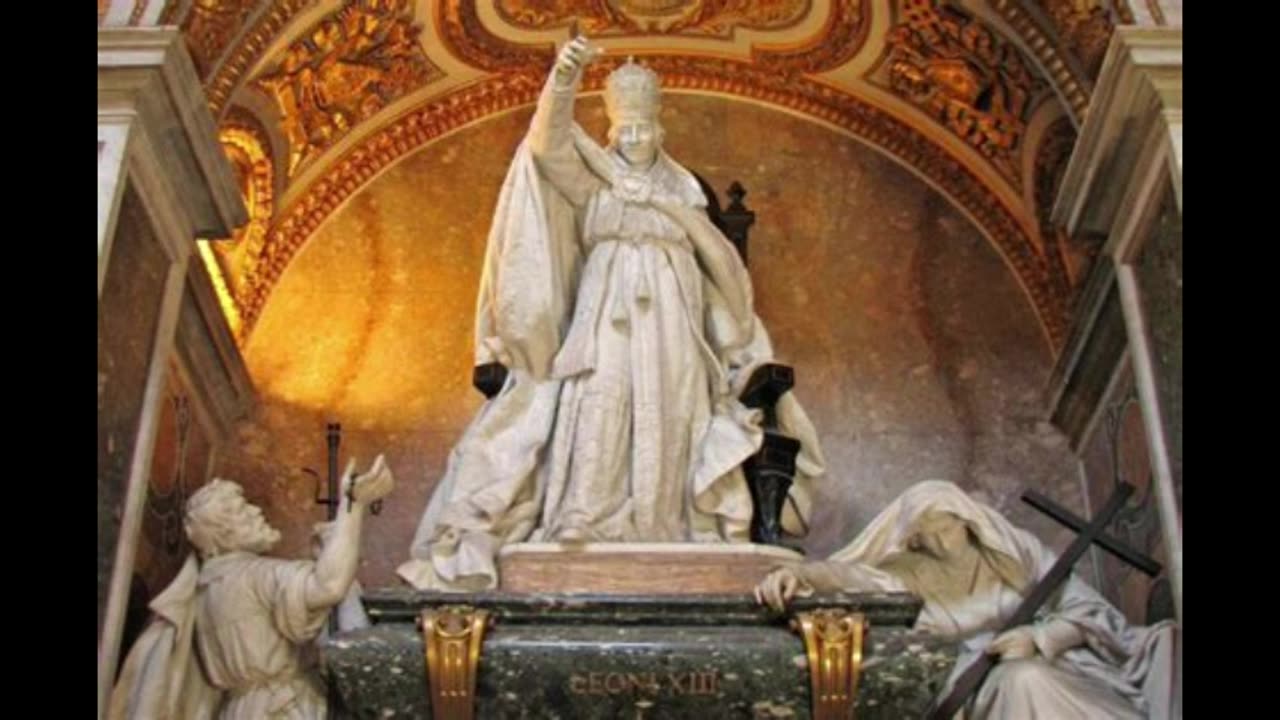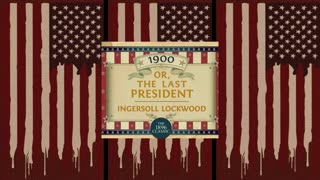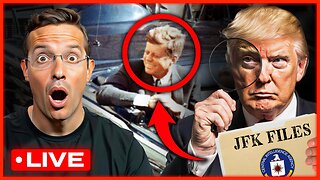Premium Only Content

Dall'alto dell'Apostolico Seggio (On Freemasonry in Italy) by Pope Leo XIII, Part 1/3: Sections 1-18
In Part 1 of the audiobook Dall'alto dell'Apostolico Seggio (On Freemasonry in Italy), covering Sections 1-18, Pope Leo XIII sets the stage for a detailed critique of Freemasonry and its influence on Italian society. This section outlines his concerns about the moral and spiritual dangers posed by secret societies, particularly in the context of the Catholic faith.
1. Introduction to the Encyclical:
The encyclical begins with a formal introduction, where Pope Leo XIII expresses his authority as the Bishop of Rome and outlines his intention to address the issue of Freemasonry. He emphasizes the urgency of the matter in light of its growing influence.
2. Historical Context:
Leo XIII provides a brief overview of the historical relationship between the Church and secret societies. He contextualizes the rise of Freemasonry in Italy, noting its origins and development, and warns against its encroachment on both religious and civil life.
3. Condemnation of Masonic Principles:
The Pope directly condemns the principles of Freemasonry, arguing that they are fundamentally at odds with Christian doctrine. He highlights the Masonic emphasis on rationalism and secularism, which he sees as undermining the authority of the Church.
4. Masonic Influence on Society:
Sections 1-18 discuss the pervasive influence of Freemasonry on various societal institutions, including politics, education, and morality. Leo XIII argues that Masonic ideologies corrupt public morals and promote a dangerous form of relativism that threatens traditional values.
5. The Nature of Secret Societies:
The Pope explores the secretive nature of Masonic organizations, critiquing their lack of transparency and accountability. He warns that such secrecy breeds mistrust and undermines social cohesion.
6. Moral Implications:
Leo XIII emphasizes the moral implications of Freemasonry’s teachings, which he believes encourage behavior contrary to Christian ethics. He urges Catholics to be vigilant against these influences and to uphold the teachings of the Church.
7. Call to Unity:
The Pope calls for unity among Catholics in the face of Masonic opposition. He encourages the faithful to strengthen their commitment to their beliefs and to support one another in resisting the encroachment of Freemasonry.
8. Spiritual Warfare:
Leo XIII frames the struggle against Freemasonry as a spiritual battle. He reminds the faithful that they must rely on prayer, virtue, and adherence to the teachings of the Church to overcome the challenges posed by these secret societies.
Part 1 effectively establishes the framework for the encyclical, highlighting the Pope’s concerns about Freemasonry and its impact on the Church and society. This section sets the tone for the more detailed critiques and discussions that follow in the subsequent parts.
About the Author:
Pope Leo XIII (1810-1903), born Vincenzo Gioacchino Raffaele Luigi Pecci on March 2, 1810, in Carpineto Romano, Italy, served as the 226th Pope of the Roman Catholic Church from 1878 until his death in 1903. His papacy is noted for its significant contributions to Catholic social teaching and its engagement with contemporary social and political issues.
Leo XIII was educated at the Roman Seminary and later at the Pontifical Gregorian University, where he developed a deep understanding of philosophy, theology, and law. He was ordained a priest in 1837 and embarked on a career that saw him rise through various ecclesiastical positions, including bishop of Perugia and cardinal.
Pope Leo XIII is best known for his social encyclicals, particularly Rerum Novarum (1891), which addressed the conditions of the working classes and set forth the Church’s stance on social justice, labor rights, and the role of the state in economic matters. This encyclical marked the beginning of modern Catholic social teaching.
His works include substantial theological writings and commentaries on Church doctrine. Humanum Genus (1884), his encyclical against Freemasonry, reflects his concerns about the moral and philosophical challenges posed by secret societies and their influence on society and the Church.
Leo XIII worked to restore the authority of the papacy and the influence of the Church in a rapidly changing world. His papacy was marked by efforts to address modernity, secularism, and the shifting political landscape of the late 19th century.
Leo XIII was known for his opposition to modernist trends within the Church, advocating instead for traditional doctrines and practices. His encyclicals often criticized secularism and liberalism, which he viewed as threats to Christian values.
Humanum Genus specifically addresses his concerns about Freemasonry and other secret societies, which he believed were undermining Christian values and Church authority. His criticism was rooted in a broader defense of Church doctrine against what he saw as subversive influences.
Pope Leo XIII’s papacy left a lasting impact on the Catholic Church’s approach to social issues and its engagement with modernity. His teachings continue to influence Catholic thought on social justice, the role of the Church in public life, and the Church’s relationship with secular ideologies. He died on July 20, 1903, and was succeeded by Pope Pius X.
-
 1:13:22
1:13:22
Deus Meum Que Jus
13 days ago1900 Or, The Last President by Ingersoll Lockwood
412 -
 LIVE
LIVE
megimu32
2 hours agoON THE SUBJECT: Make 90s Movies Great Again
553 watching -
 LIVE
LIVE
Precision Rifle Network
1 day agoS4E3 Guns & Grub - Trump a new era for gun rights?
76 watching -
 1:05:31
1:05:31
Glenn Greenwald
4 hours agoSection 702 Warrantless Surveillance Ruled Unconstitutional: Press Freedom Advocate Seth Stern Explains; The Rise of Unions & the Impact of Trump's Populism with Author Eric Blanc | SYSTEM UPDATE #395
45.9K54 -
 LIVE
LIVE
The Amber May Show
2 hours agoWomen Of Rumble | Amber, Kelly and Wendy Wild
319 watching -

Josh Pate's College Football Show
4 hours ago $0.57 earnedCFP Title Viewership | JP Poll Under Attack | Bama & Oregon Season Grades | Most To Prove In 2025?
12.5K -
 LIVE
LIVE
VOPUSARADIO
8 hours agoPOLITI-SHOCK! "THE TIDE IS TURNING"! 3 SPECIAL GUESTS JOINING US TONIGHT!
106 watching -
 52:47
52:47
Kimberly Guilfoyle
6 hours agoDismantling DEI Once and For All, Live with Tyler O’Neil & Eric Deters | Ep.190
76.5K28 -
 1:34:59
1:34:59
Redacted News
6 hours agoBREAKING! TRUMP SIGNS ORDER TO RELEASE JFK FILES, CIA IS FURIOUS | REDACTED NEWS
195K317 -
 1:36:09
1:36:09
Benny Johnson
6 hours ago🚨WATCH: President Trump Declassifies JFK, RFK, MLK Files LIVE Right Now in Oval Office, History Now
149K252